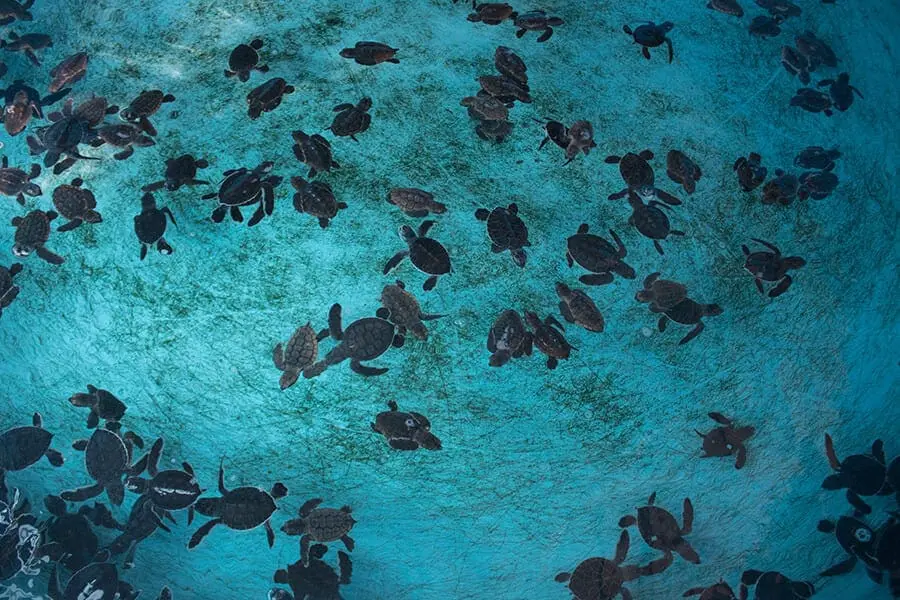

Our Sea Turtle Healing Center admitted more than 1,500 “washbacks” following Hurricane Irma in 2017. We could find ourselves in a similar situation soon.
As we hurriedly prepare for Tropical Storm Isaias, it’s easy to overlook the impact these storms can have on wildlife. But in the coming days, there’s a good chance we’ll see an increase in sea turtle strandings.
At this point, beachcombers are most likely to find eroded nests or displaced eggs. Do not attempt to “fix” nests or move the eggs.
You might also encounter “washbacks” (juveniles who already swam out to sea and have been “washed back”). Though you may think you’re lending a helping hand by putting them back in the water, these little guys will not have the energy to make the miles-long return to the Sargassum line where they need to spend this stage of their life cycle.
Sea turtles have lived in our oceans for millions of years, and adults are much better equipped to survive powerful storms. However, debilitated or wounded individuals may also wash up and require our assistance.
Sea turtles of every size (and their nests and eggs) are protected at the state and federal levels, and it is illegal to touch them. If you find one in need, contact Florida Fish and Wildlife Conservation Commission at 1-888-404-FWCC or Sea Turtle Preservation Society (in Brevard County only) at 321-206-0646 for instructions. Be prepared to tell the operator your exact location, the closest access point, the approximate size of the animal and whether it has any artificial markings.
Remember to stay off the beach during extreme weather and wave action, and heed all posted regulations. We appreciate your assistance in protecting these treasured creatures, but your own safety should always come first.
